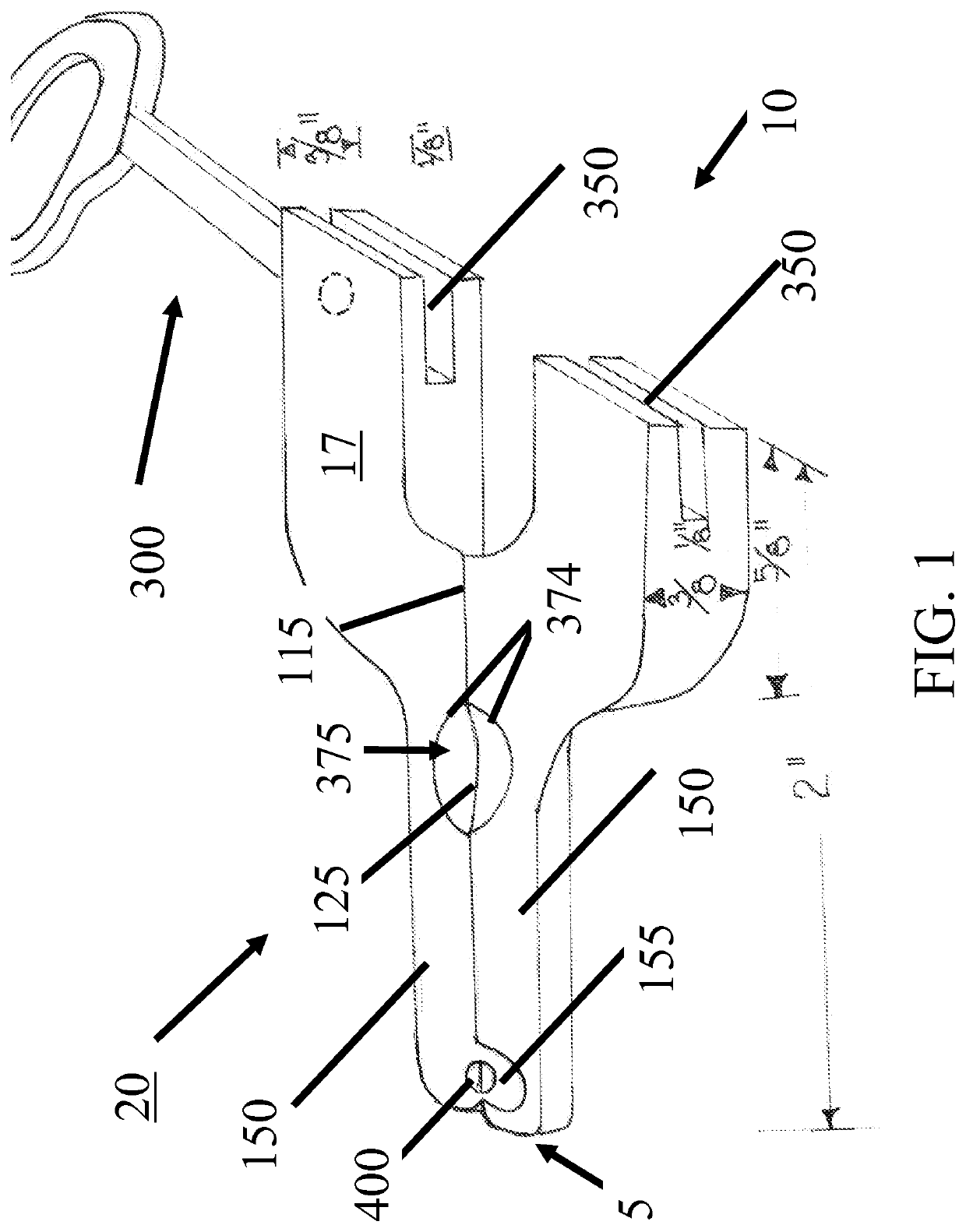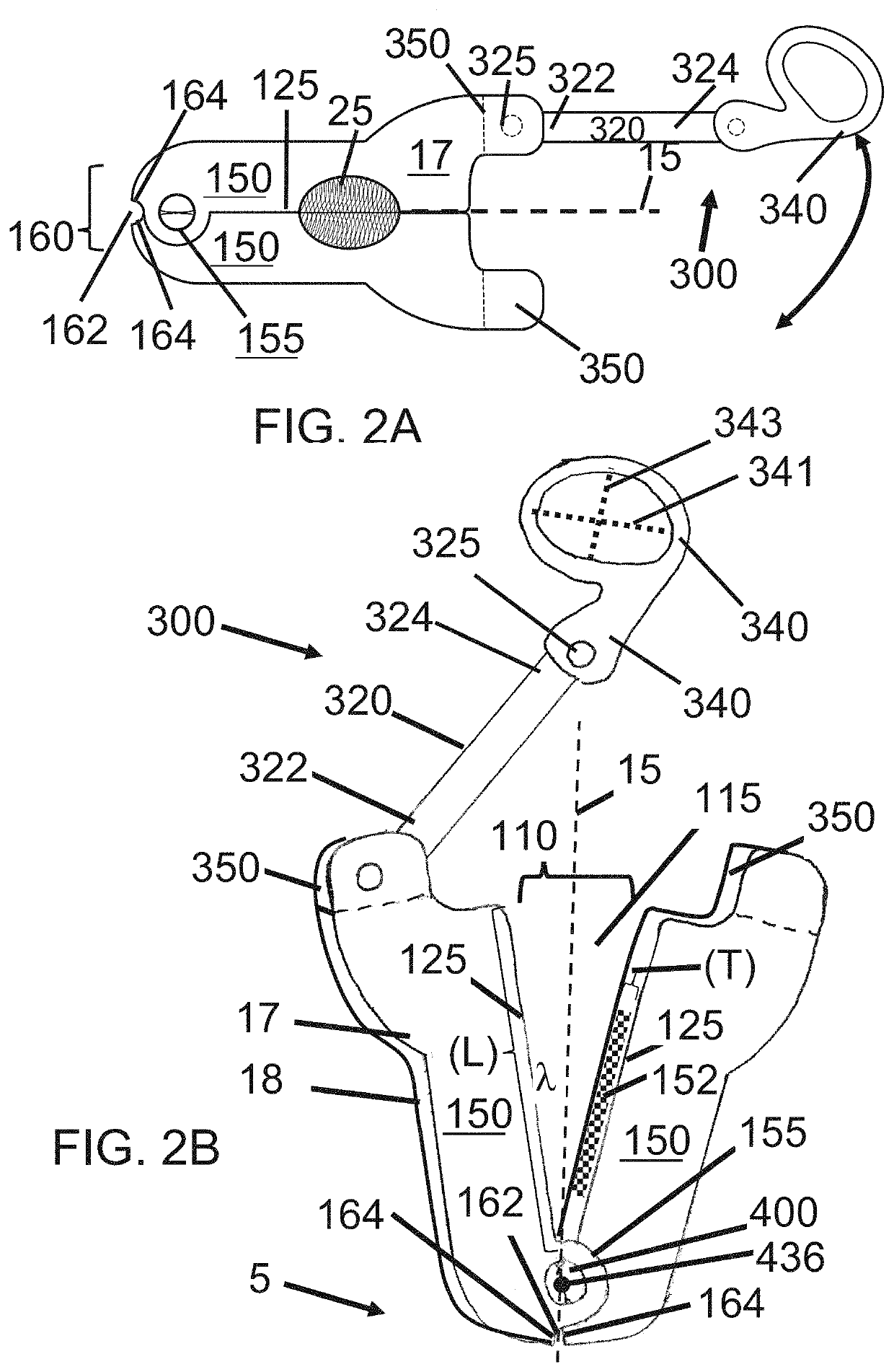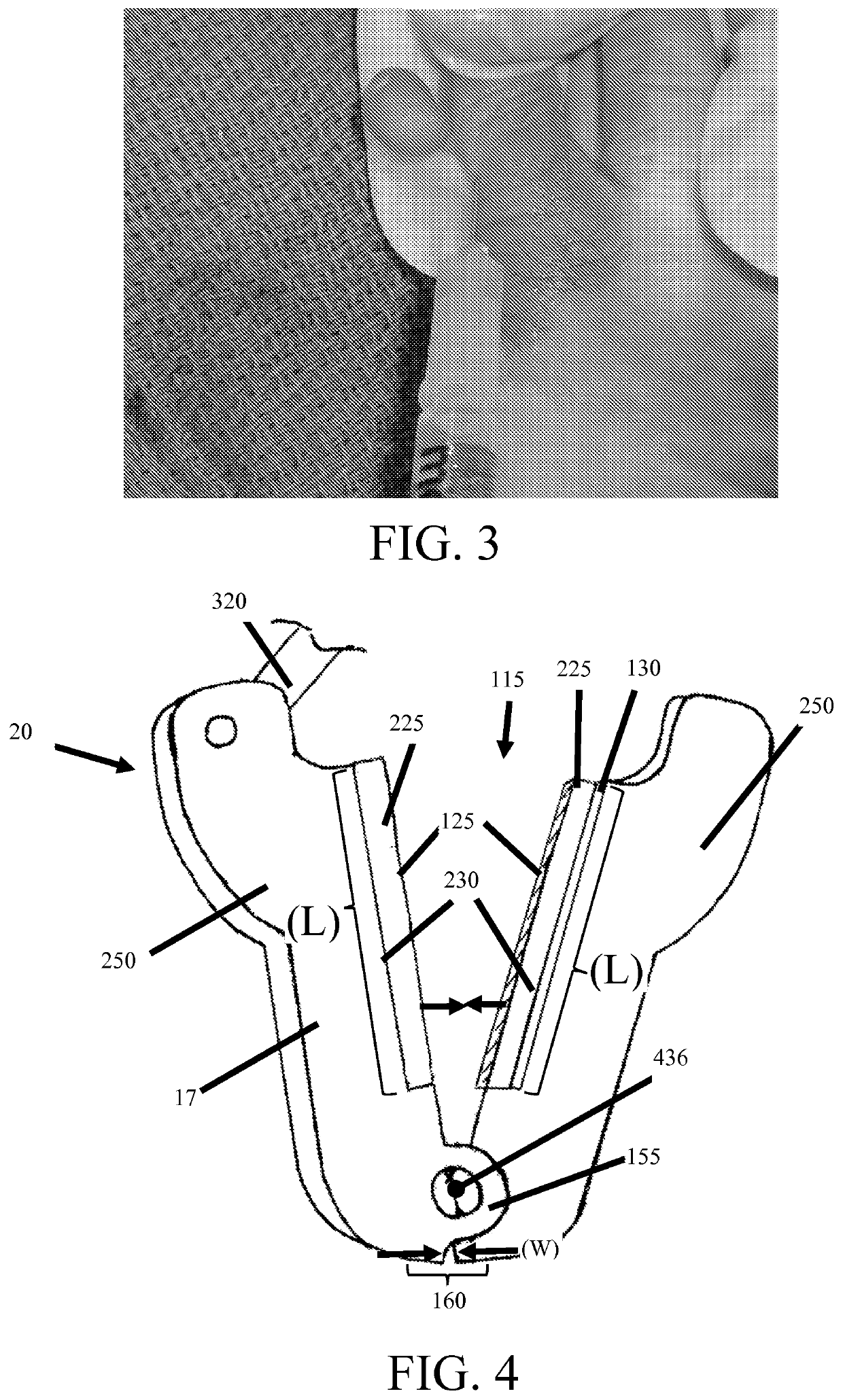Devices and methods for removing unwanted tissue
a technology for unwanted tissue and removal methods, applied in the field of unwanted tissue removal devices and methods, can solve problems such as inability to remove the testis, and achieve the effect of fast and curative removal of unwanted or redundant tissu
- Summary
- Abstract
- Description
- Claims
- Application Information
AI Technical Summary
Benefits of technology
Problems solved by technology
Method used
Image
Examples
example 1
Amputation of a Polydactyl Digit on an Infant
[0130]An infant presenting with polydactyly is first examined and, if appropriate, prepared for removal of the digit. The infant is usually allowed to suck on a glucose solution, to distract from and diminish pain prior to the procedure. The area around the affected digit is thoroughly sterilized using Betadyne® or a chlorhexidine solution and dressed with sterile field.
[0131]Once a sterile field has been applied, the area near the polydactyl digit is locally anesthetized by infiltrating subcutaneously with 0.1 to 0.2 ml of 1% Lidocaine® proximal to the pedicle of the extra digit and the metacarpo-phalangeal joint.
[0132]After sufficient time has transpired for the blockade to take effect, the hemostatic clamp is applied, while applying mild traction on the rudimentary digit, flush with the lateral aspect of the base of the digit. The locking mechanism is engaged to secure the clamp around the base of the digit. The hemostatic clamp remain...
PUM
 Login to View More
Login to View More Abstract
Description
Claims
Application Information
 Login to View More
Login to View More - R&D
- Intellectual Property
- Life Sciences
- Materials
- Tech Scout
- Unparalleled Data Quality
- Higher Quality Content
- 60% Fewer Hallucinations
Browse by: Latest US Patents, China's latest patents, Technical Efficacy Thesaurus, Application Domain, Technology Topic, Popular Technical Reports.
© 2025 PatSnap. All rights reserved.Legal|Privacy policy|Modern Slavery Act Transparency Statement|Sitemap|About US| Contact US: help@patsnap.com



